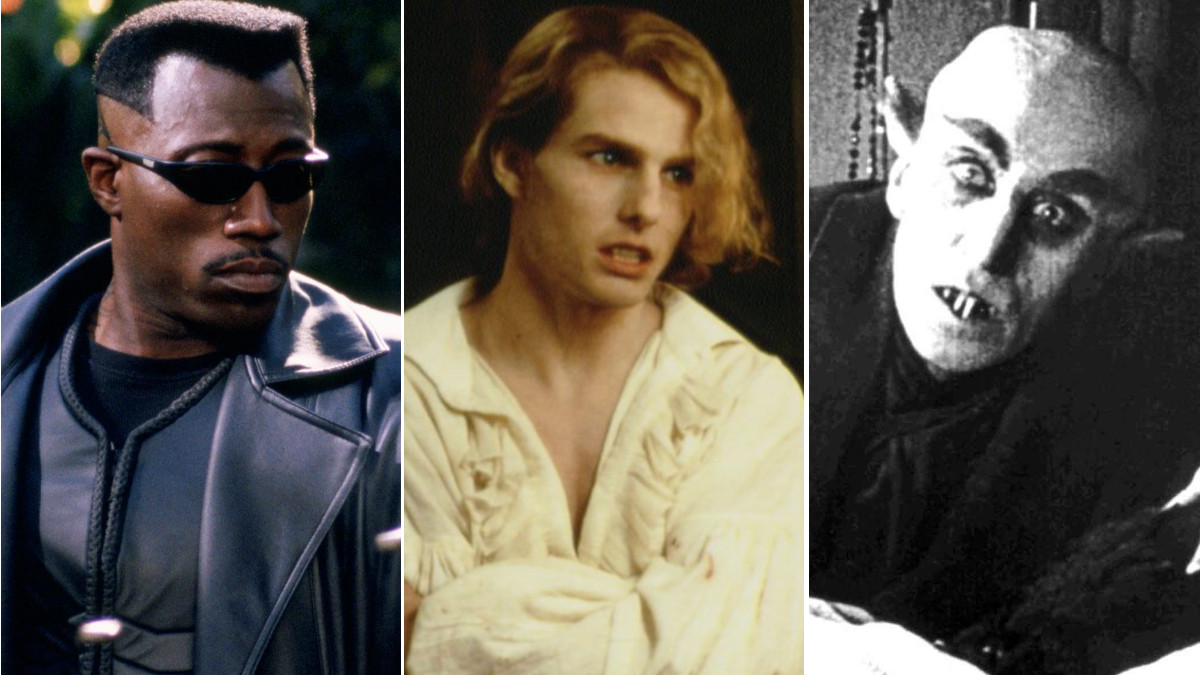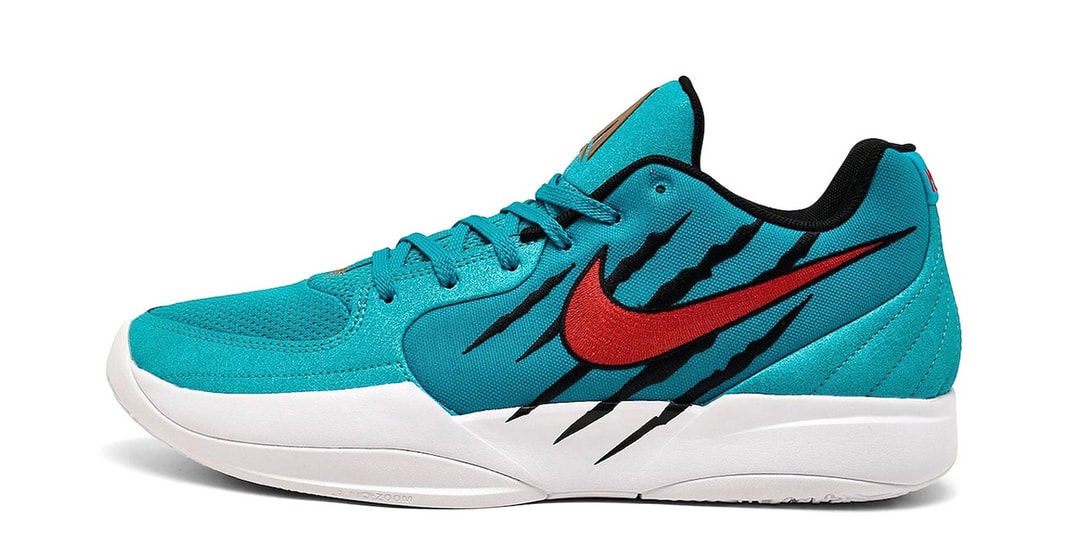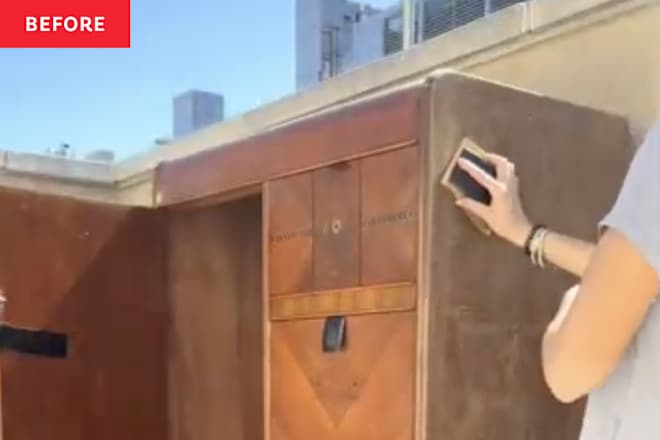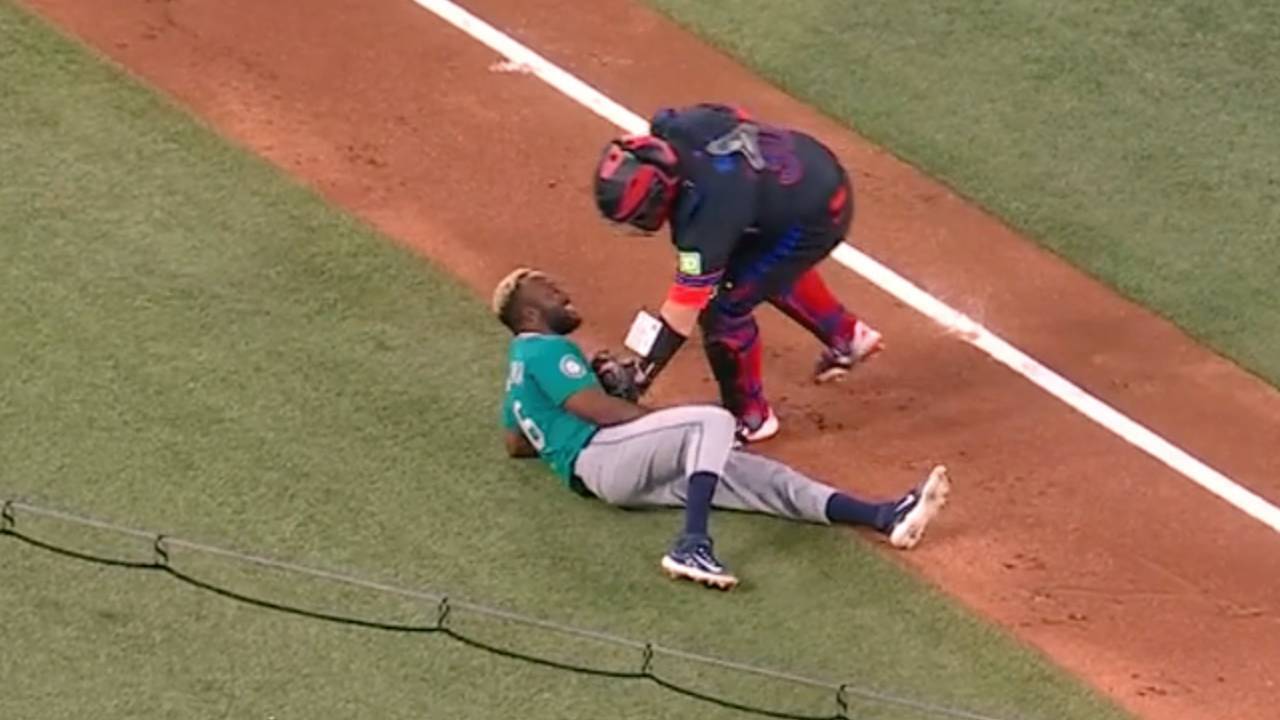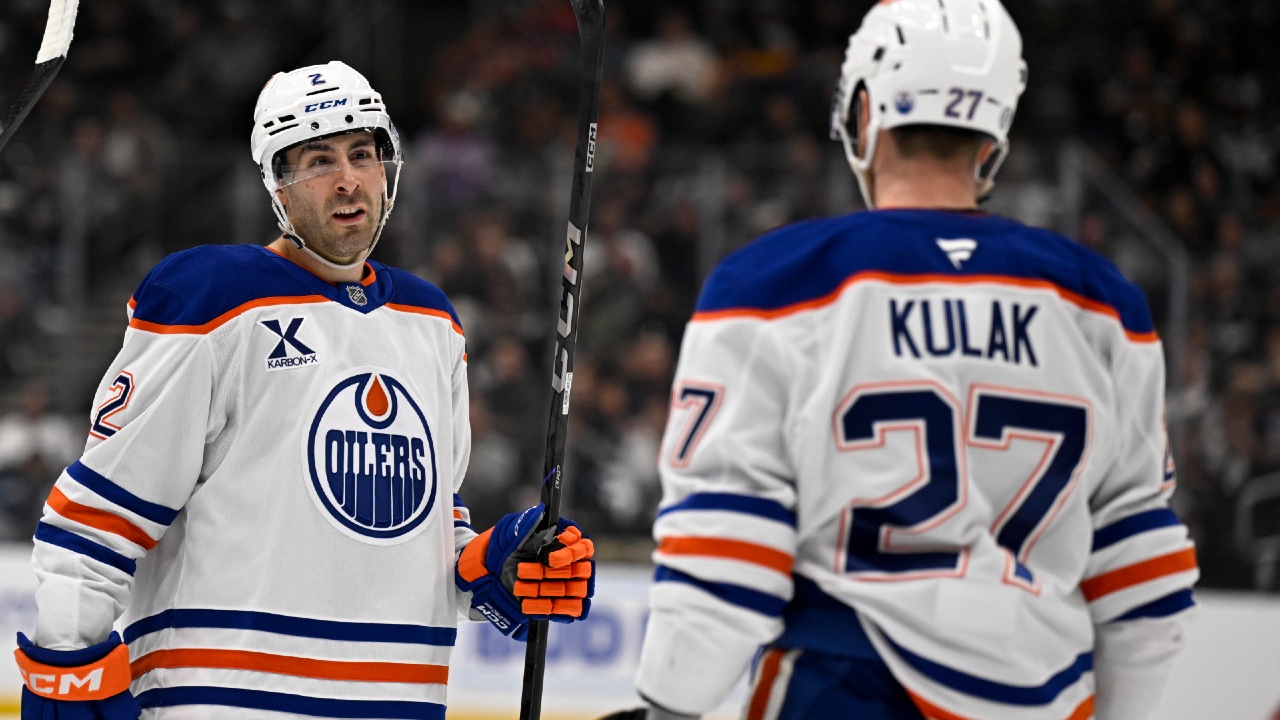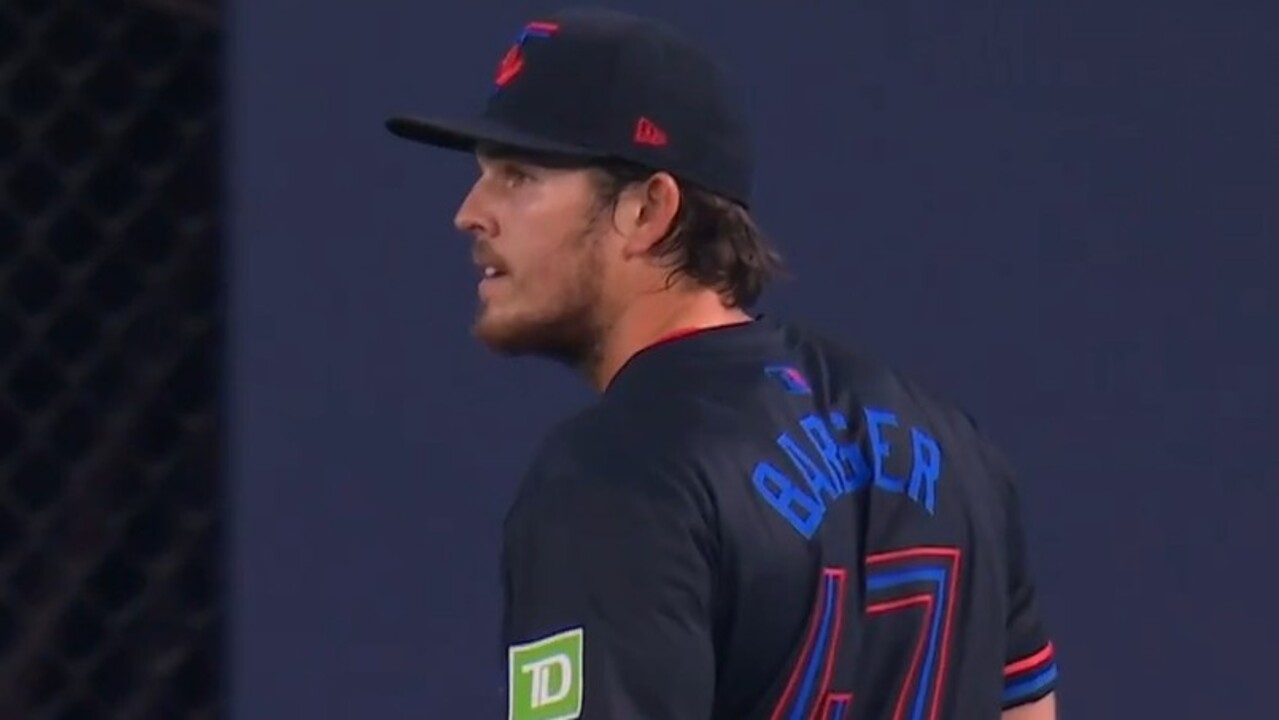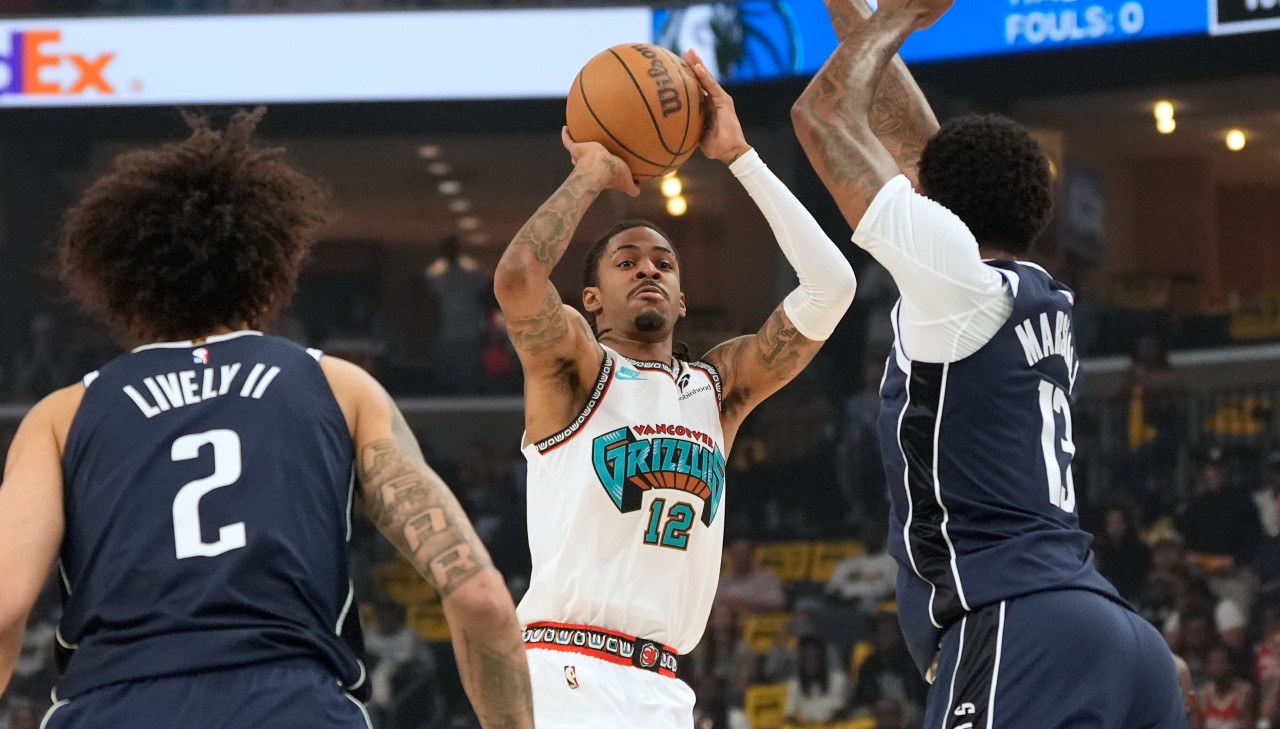‘Turns to madness’: Q&A with Dakota Mermis, Maple Leafs’ next man up
The Leafs chose journeyman Dakota Mermis (twice!) because of his simple, competitive approach, varied experience and steady professionalism. How’s he feel about all that? Luke Fox chats with the veteran D-man.

Dakota Mermis has a purpose.
In the decade since the undrafted journeyman has spent in the pros since hoisting the 2015 Memorial Cup with the Oshawa Generals, he has worn the sweater of six farm-league clubs and five NHL ones.
What the 31-year-old defenceman has never done, though, is participate in the Stanley Cup playoffs — a streak that could end as early as next week, what with injuries lingering over two of the Toronto Maple Leafs’ other left-shot defencemen.
The Leafs chose Mermis (twice!) because of his simple, competitive approach, varied experience, and steady professionalism.
And the instantly likeable native of Alton, Illinois, signed for just $775,000 in Toronto for one reason. He wants to win, by any role necessary.
That a bunch of his old London Knights teammates — Mitch Marner, Max Domi and Anthony Stolarz — were already here was a bonus.
We chatted with the Leafs’ next man up about eating through a straw, rooming with a young Stolarz and livin’ that waivers life.
The following interview is combined from conversations that took place in Calgary and Buffalo, and has been lightly edited for clarity and length.
Sportsnet: You sign to the Leafs as a free agent, break your jaw in camp, play for the Marlies, get waived, picked up by Utah, then reclaimed by Toronto after one game for HC. How would you describe your season?
Dakota Mermis: I don’t really have a good way to describe it, besides a bit of chaos. You train all summer. You’re excited. You feel good. And then, unfortunately, one week into training camp, you’re on the table getting some work done that keeps you out for a while. And then coming back, I had the waiver situation and going to Utah for a month-ish — hard to describe. I’m just taking it all as it comes.
SN: How do you deal with all this turmoil, mentally?
DM: Fortunately, I have a great support system at home with my wife (Sarah) and my kids. They’re all with me. My wife took great care of me for the liquid-diet portion of my rehab, which was quite a while. Just relying on having the right mindset, which I’ve tried to carry with me my whole career: knowing that things will get better. With the injury, it was tough, especially the first few weeks, but just knowing that hard things do get easier. And moving across to the other side internationally, into the U.S. for a bit, you don’t have any choice but to take it in stride.
SN: How does the waivers conversation go? Do the Leafs tell you that they’ll try to snatch you back if Utah waives you?
DM: They hoped I was going to clear. And coming off a significant injury where I hadn’t played a lot, I didn’t expect to get claimed. But it’s all timing and need. Utah had a lot of injuries at the time and had some needs. I went to Utah expecting to be there the rest of the year. But things kind of unraveled there. And I found myself (in Calgary) wondering if Toronto was going to reclaim me. I was hoping that would be the case since we had a home in Toronto; we hadn’t moved out of our place completely. So, we were able to pick back up where we left off. For my family’s sake, it was nice to get reclaimed.
SN: Explain what those 24 hours on waivers feels like.
DM: You have to wait till 2 p.m. Eastern the next day, so the night you’re on waivers, you know you’re not going to hear anything until the next day. So, you can kinda just park it. But it’s those couple hours leading up to 2 p.m., when you’re either set to clear or you get claimed, that’s when it starts to get a little exhilarating. It happens fast. When I got claimed by Utah, we were at home. It was a calm off-day. In a matter of seconds, two o’clock hit. It was chaos to get bags packed and get to the airport in a couple hours. It just turns to madness.
But you can have it the other way, too — where you go unclaimed, and life goes on as normal. I’ve been on waivers a number of times, and they’re all unique. Sometimes you’re on the road. Last year, playing for Minnesota, I was on waivers (during the NHL Global Series), and I cleared. I wasn’t getting reassigned; it was a cap situation. But here I am in Europe jumping on a plane in Stockholm to meet the team.
SN: Does your agent tell you which teams have interest in claiming you?
DM: Teams hold their cards tight. I didn’t have any indication Utah was going to happen. Tree (Brad Treliving) called me one minute after two o’clock, and I was expecting him to just say, ‘You cleared.’ And he said, ‘We would like to thank you. Utah claimed you.’ In the reverse, I was on the plane with Utah when I got reclaimed. Their admin came back to my seat and said, ‘You got claimed back by Toronto.’ I couldn’t take any calls up in the air, so I was texting to figure out the next steps.
SN: What was your sense of hockey in Utah during your four weeks there?
DM: Awesome. The fans were phenomenal. The atmosphere at the arena was great. You can tell that ownership and (president) Chris Armstrong are doing things right. They treated me and my family so well in just the short time I was there. They’re definitely building something good.
SN: The Leafs have a strong blueline. You want to be in the Show. How have you managed being a Marlie when your desire is to be up here?
DM: I’m in my 10th year. You always have something to prove — but mostly just to myself, that my game is still really good. Which I like. And one thing for me, coming into free agency (in 2024), was wanting to be in winning places — even if that means you’re further down the depth chart. You get to a point in your career — I’m in my 30s now — where you want to be a part of winning. It’s a belief of mine that even if you’re lower on the depth chart, in the minors, or just out of the lineup, you can contribute to winning in some way. Even if it’s practise habits. So, being back here on a good team that’s making a big, strong push is what I wanted coming into the year. Whatever that looks like, whatever role I play within that, it’s good for me.
SN: Which Leafs have you clicked with?
DM: Philippe Myers, I met right away in training camp. We’re similar guys coming in on league-min deals from outside the organization. I played with Marns, Domes, and Sollie in junior. I crossed paths with OEL in Arizona. It’s a good group; I’ve meshed with everyone. I leave for like a month, then come back, so it’s seamless.
SN: The season Stolarz is having, did you see this ceiling in London?
DM: Me and him actually left college at the same time to join London. We were roommates; we lived together. Obviously, you see his size right away, but he’s got great athleticism, which everyone in Toronto is seeing. Now he’s got a Stanley Cup ring. Happy for him, and unsurprising to me.
SN: What kind of roommate is he?
DM: He was great. Just a squirrelly goalie, but in the best way. We had a lot of fun together. You know, that was 11 or 12 years ago, so it’s cool to cross paths again — and back in Canada. He was the draft pick. I didn’t know if I would have a pro career. Here we are playing together again, just in different circumstances.
SN: What do you remember about the first time you met Marner in London?
DM: He was tiny then, maybe half the size he is now. He was quiet. A highly skilled, highly touted player coming in, a guy we were all excited to see get into action. The skill level and his skating — and it’s only gotten better since then — stood out right away. How he can move on the ice, be elusive and create space for himself is at a level different from other guys. That’s what’s most impressed me most: He started at such a high level, but it’s continued to just get better and better as he got older.
SN: Quiet? He’s not now.
DM: Initially. He was the new kid, a 16-year-old. But he opened right up once he got comfortable. He’s funny, comical. He likes to joke around. It’s cool to cross paths again. His career speaks for itself — greatly successful. But he’s the same kid you knew in junior.
SN: Pretty late, but you finally made your Maple Leafs debut on Sunday. How’d it feel?
DM: Exciting. When I signed to Toronto in the off-season, the goal was to wear the historic Maple Leaf. So, it was great. Nothing like waiting until Game 80, but glad I was able to get in.
SN: Any nerves parachuting in when the team is trying to clinch the division?
DM: No nerves, especially at this point in my career. I’ve been in different organizations, played games throughout my career, so there was no nerves. Just excitement.
SN: What does coach Craig Berube want you to bring?
DM: Nothing overbearing. They know what I bring: consistency, leadership qualities, experience from different places. It’s just to be competitive, be strong defensively, move pucks quick and let our forwards do what they do.
SN: The club wants all the D to be healthy, of course. But what would it mean to you to participate in the playoffs this weekend?
DM: It would mean everything. That’s one of the main reasons, again, I wanted to sign in Toronto at this point in my career. Like, I haven’t won in pro. I want a chance to be a part of winning. So, if I get an opportunity to contribute to that on the ice, that’d be amazing. I’d love to get in. I can contribute off the ice as well — push culture and be ready and just wait for the opportunity.





















































